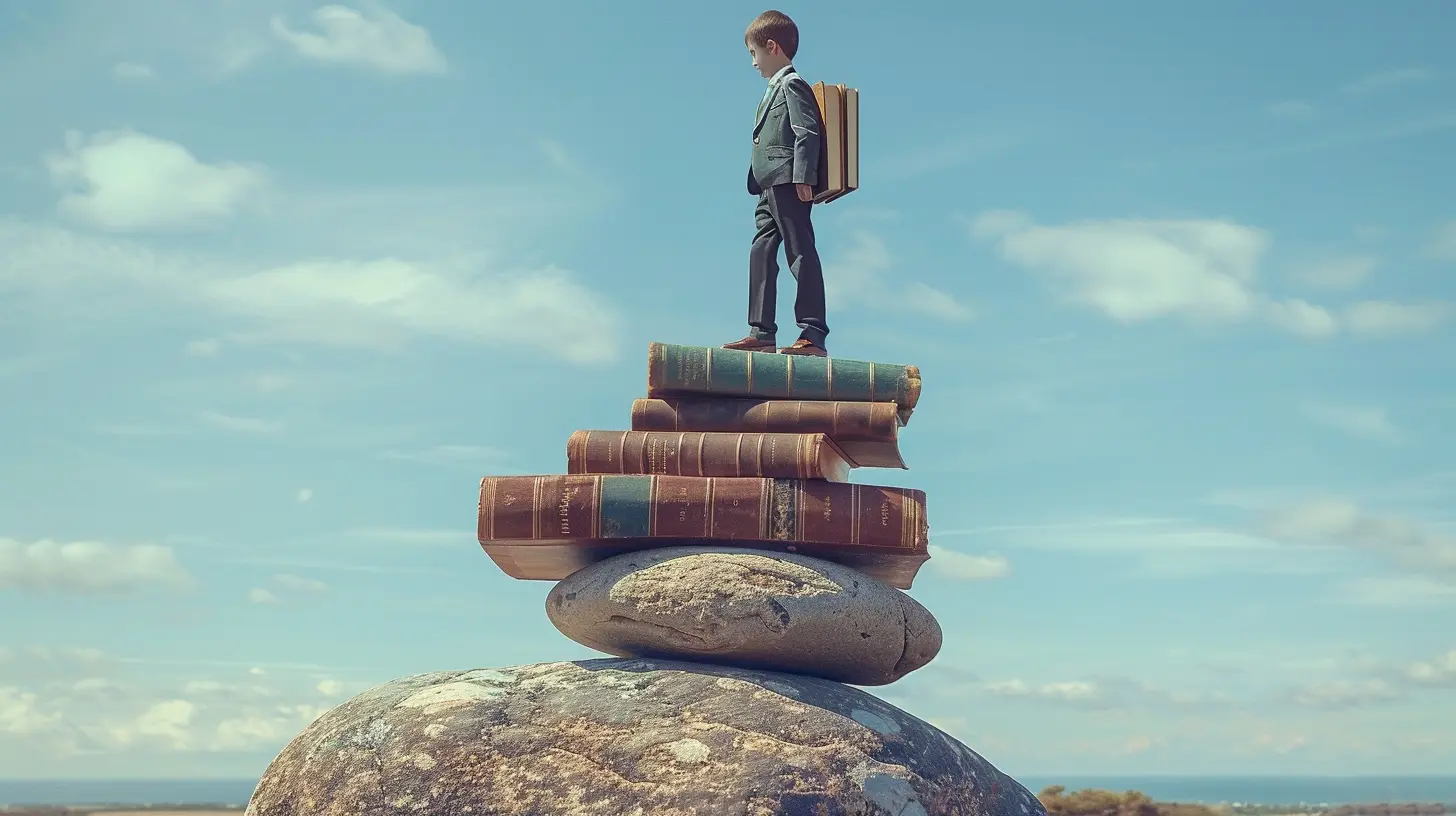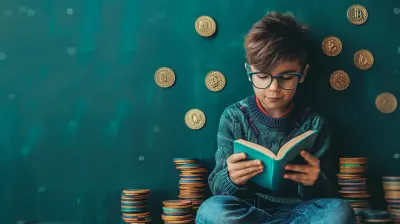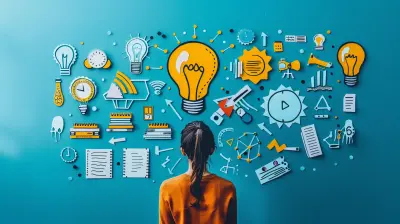Rebalancing the Curriculum: Skills vs. Knowledge
24 August 2025
Isn't it wild how much education has changed in just the past couple of decades? From chalkboards to Chromebooks, from memorizing facts to mastering Google Slides – it’s clear that our classrooms are evolving. But there's a big debate heating up in the world of education: Should we focus more on skills or knowledge?
Yep, it's the age-old tug-of-war between stuffing our brains with facts and actually knowing how to do stuff. And spoiler alert – it turns out we might need a healthy mix of both!
In this joyful, cheerful deep-dive, we’re going to unpack what it really means to rebalance the curriculum between skills and knowledge. We'll break it down simply, crack a few smiles along the way, and leave you with a fresh perspective on the future of education.
📚 What Do We Mean by “Knowledge”?
Let’s start with the basics. When educators talk about “knowledge” in a curriculum, they’re usually thinking about content – like historical dates, scientific theories, grammar rules, math formulas… you get the picture.It’s the foundational stuff. The “what.” What is the capital of France? What causes photosynthesis? What’s 9 x 12? These facts are the building blocks we’ve traditionally used to measure learning.
And hey, knowledge is important! Without facts, how can we build opinions, solve problems, or even win at trivia night?
🛠️ Then What Are “Skills”?
On the flip side, skills are all about the “how.” How do you think critically, solve real-world problems, collaborate with others, communicate ideas, or use tech tools to get things done?Skills are things like:
- Critical thinking
- Problem-solving
- Collaboration
- Digital literacy
- Emotional intelligence
Think of it this way: If knowledge is the toolbox, then skills are knowing how to use each tool effectively.
🎯 Why This Debate Even Matters
Great question. Why are we even fussing over this?Well, the world is shifting fast. Employers, universities, and real life in general are demanding more than just straight-A report cards. They want thinkers, doers, creators, and collaborators.
So the big question becomes: Is our current education system preparing students to thrive in the modern world?
Because memorizing the periodic table is cool and all... but can you explain it to a team, create a project about it, or apply it in a real-world scenario?
🧠 The Case for Knowledge: Why It Still Matters
Let’s clear one thing up: knowledge isn’t going anywhere. It’s the foundation on which skills are built.Here’s the deal:
- You can’t think critically about a topic you know nothing about.
- You can’t solve a problem without understanding the concepts behind it.
- You can’t communicate effectively without vocabulary and background info.
So, ditching knowledge altogether? Bad idea.
Instead, we need to shift how we use knowledge. Instead of rote memorization and regurgitation, let's move toward applying knowledge in ways that matter.
🔧 The Power of Skills: What Students Really Need Today
Let’s be real – we’re living in a time where Google can answer almost any factual question in seconds.So what makes someone stand out? It’s not just what they know. It’s what they can do with what they know.
Students today need to:
- Adapt to rapid tech changes
- Work across cultures and time zones
- Think entrepreneurially
- Solve new, complex problems
- Learn continuously
Skills like creativity, communication, and decision-making are no longer “nice to have” – they’re essential.
🎓 Real Classrooms, Real Challenges
Okay, so teachers aren’t magicians. They already juggle 27 things a day. Adding more skills-focused lessons can feel like balancing on a unicycle… on a tightrope… in a windstorm.But here’s the good news: skills and knowledge don’t have to compete. They can coexist beautifully, even in a packed curriculum.
Imagine a history class where students not only learn about the World Wars but also:
- Debate decisions made by leaders
- Create podcasts analyzing causes and effects
- Use data to map out the economic impact
Boom – knowledge + critical thinking + communication in one go!
🧑🏫 What Educators Can Do Right Now
So how do we start rebalancing without flipping the whole system upside down?Here are some simple shifts teachers can try:
💡 Inquiry-Based Learning
Instead of handing over all the facts, let students ask the questions. Encourage curiosity and dig deeper together.🧩 Cross-Curricular Projects
Blend subjects like science and art, or math and social studies. Projects that span topics are great for developing both knowledge and skills.🎤 Student Presentations
Let students teach each other! It boosts communication, confidence, and forces them to understand content thoroughly.🧠 Metacognition
Teach students to think about their thinking. Reflecting on how they learn builds independence and self-awareness.🏗️ Building a Balanced Curriculum: What It Looks Like
A rebalance doesn’t mean starting from scratch. It means tweaking the recipe – a little more of this, a little less of that.A balanced curriculum should:
- Teach core knowledge clearly and meaningfully
- Provide regular opportunities for applying that knowledge through real-world tasks
- Focus on transferable skills like creativity, leadership, and tech fluency
- Encourage student voice, choice, and agency
It’s like building a Lego masterpiece. You need the bricks (knowledge), but you also need a creative mind (skills) to build something spectacular.
🌍 Around the World: What’s Working?
Countries like Finland and Singapore are blending skills and knowledge beautifully. Their students not only perform well academically but also feel empowered and engaged.And in many schools worldwide, innovative approaches are popping up:
- Project-based learning
- STEM and STEAM initiatives
- Design thinking
- Entrepreneurial education
These strategies recognize that it’s not a choice between skills or knowledge – it’s about how they support each other.
🎉 Let’s Celebrate Both!
Here’s the bottom line: We don’t have to choose sides. Skills and knowledge are two halves of the same whole.Knowledge gives students the facts, the tools, the “what.” Skills give them the spark, the action, the “how.” One doesn’t work without the other.
When we stop treating them like rivals and start treating them like best buddies, the real magic happens.
Because in today’s world, the most successful learners are those who can think deeply, act wisely, and adapt happily – and that takes both knowledge and skills, working hand in hand.
🙌 Wrapping It All Up with A Smile
Rebalancing the curriculum isn’t about throwing out textbooks or going full-on tech wizard. It’s about harmony. It’s about finding that sweet spot where content meets capability, and where students feel confident, curious, and ready for anything.Let’s build classrooms where kids don’t just memorize – they understand, question, apply, and shine.
So the next time you hear someone ask, “Should we be teaching skills or knowledge?” – grin and say, “Why not both?”
Because the future belongs to the skilled and the smart – and it starts with a balanced, joyful education.
all images in this post were generated using AI tools
Category:
Education ReformAuthor:

Anita Harmon
Discussion
rate this article
1 comments
Edith Strickland
Balancing skills and knowledge is essential for holistic education. Prioritizing both ensures students are prepared for real-world challenges and lifelong learning opportunities.
September 17, 2025 at 12:20 AM

Anita Harmon
Thank you for your insightful comment! I wholeheartedly agree that a balanced curricula fosters well-rounded individuals, equipping them to navigate real-world challenges effectively.


